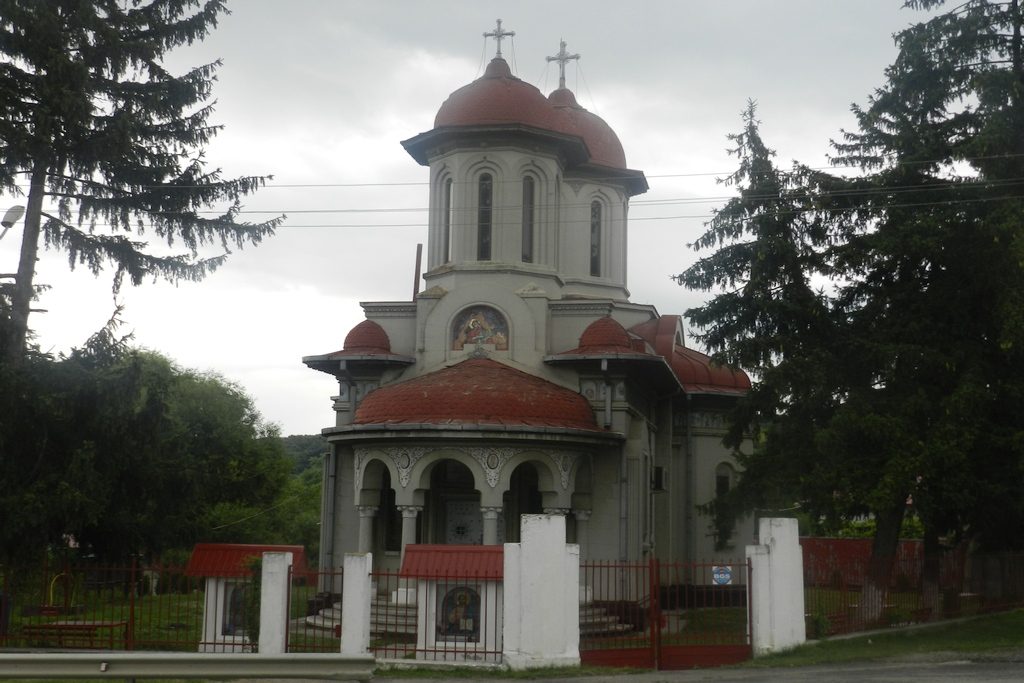

Saint Elijah Church from the Stone Cross was built in the year 1938, on the expense of Ilie Stoian and of his wife, Aneta. The church was built up for the eternal memorial of the heroes who hell in the fight against the pagans, for defending the country and of the ancestral faith. The church is situated near the place where, in 1595, Michael the Brave was defeating the Turks.
Ilie Stoian covered the expenses for the parsonage for the priest’s accommodation, namely for the consecration of the new place of worship on the day of Sunday, the 30th of October 1938.
Moreover, from his estate, the aristocrat also equipped the church with approximately 4 acres of cultivable land.
Very important is the fact that the priest who was named there, worked as a private employer of the founder aristocrat, being supported by him from the ordination of the priest (Drăgan), from October 1838 and untl in April 1940 when the last one was passed at the budget of the Ministry of Culture. For these facts, Ilie C. Stoian and his wife, Aneta, were declared the founders of the church from the village the Stone Cross, being issued, by the Holy Archdiocese of Bucharests, the Mitropoly of Hungarian – Wallachia, the diploma of founders, at the very moment of consecrating the church.
The two founders, Ilie C. Stoian and his wife, Aneta, have their eternal sleep at this church with the titular saint of “Saint Elijah Tesviteanul”.
Elijah was a Jewish prophet, mentioned in chapter 17 – 20 from the Third book of the kings from the Old Testament.
On the 20th of July it is celebrated the rapture of Saint Elijah, Tesviteanul. Saint Elijah is celebrated as a great wonder – worker and the one who brings the rain in the times of drought. He activated in the North Kingdom, during the times of King Ahab. He got married with a pagan princess, Isabela, who attracted him to falling to idolatry; the lacking of devotement and the depraving of his predecessors reached its highest level. The Saint and Great Prophet Elijah approached him directly by bearing a hard fight for a rightful faith of the people who, by the example of their superiors was dragged into idolatry. At the words of the Prophet, a great drought came onto the land then. From the command of God, the Prophet left the land of Israel and went to the river of Chorrath (Kerrith). He drank from the water of the waterfall, and God sent him ravens in order to bring him bread in the morning and meat in the evening, in order to prompt in him feelings of mercy for the people who were suffering. When the waterfall would drain, God will have sent him to Sarepta from Sidon, leaving him to see the disaster effects of the drought, in order to prompt in him once again the feelings of mercy. Elijah arrived at a poor widow, pagan, who was collecting wood for bake bread for her and for her son. Despite the bareness, she put aside all the necessary ones for the hospitality and when the Prophet asked her, she prepared him bread, with the floor and the oil which she still had. She received without delay the reward for her hospitality: at the command of the Prophet, the kneading trough with floor and the tankard with oil weren’t empty anymore until the rain came back. It had passed some days since Elijah was hosted at this widow, when her son died. Elijah took the child, got up with him at the first floor where he lived and after he blew three times over the lifeless body, he gave back the boy alive to his mother, therefore prophesying the resurrection of the dead.
Arrived through his ambition to the highest grounds of the virtue, Saint Prophet Elijah didn’t die, but he was lifted to heaven, being considered worthy of seeing the praise of the embodied God, together with Moses and together with the three Apostles in the day of the Transfiguration of Jesus (according to Mathew 17).
